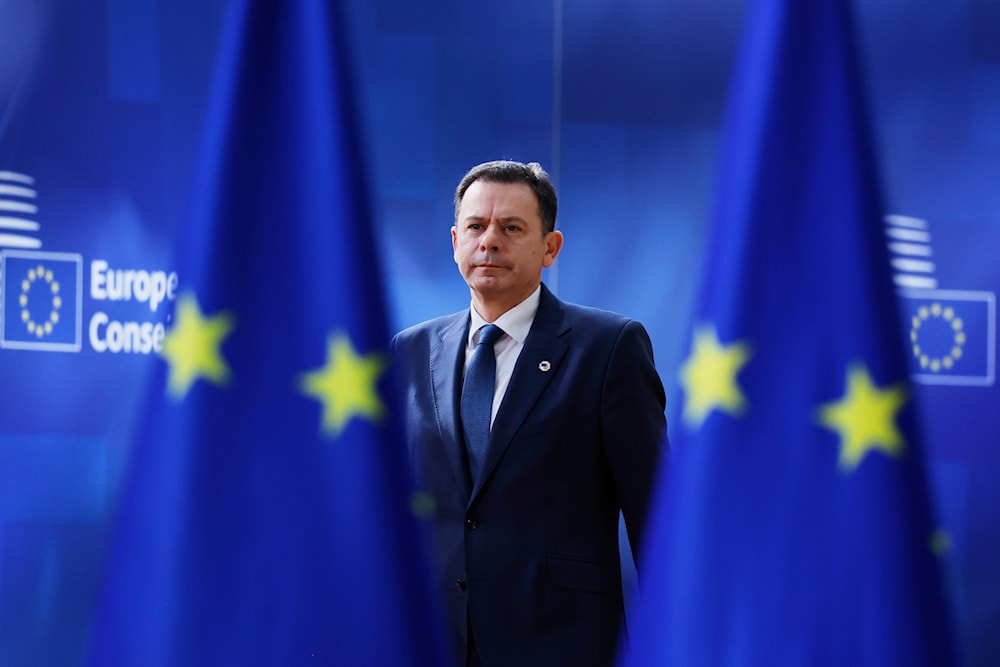Portugal PM poised to lose confidence vote
Portugal's center-right Prime Minister Luis Montenegro is set to lose a confidence vote on Tuesday amid a conflict-of-interest scandal, which will end his minority government after just over a year.
-

Portugal's Prime Minister Luis Montenegro arrives for an EU Summit at the European Council building in Brussels, on March 6, 2025. (AP)
Portugal's center-right Prime Minister, Luis Montenegro, facing an alleged conflict-of-interest scandal, is expected to lose a confidence vote on Tuesday, which will bring down his minority government after just over a year in power.
The parliamentary debate on the vote is set to start at 1500 GMT.
The opposition Socialists have made it clear they will vote against Montenegro, turning down efforts to secure their backing.
The Socialists took a step further on Monday by officially requesting a parliamentary commission of inquiry into Montenegro's potential conflict of interest.
The government's spokesperson, Antonio Leitao Amaro, said that even though the prime minister "has answered practically all the questions... there are some who want to ignore the answers," adding, "We want to keep governing," but that came down to the Socialists.
Montenegro said Saturday that he had felt compelled to call the confidence vote because of a "responsibility" to prevent Portugal becoming "mired" in instability.
If the government loses the vote, Montenegro will be forced to resign, and President Marcelo Rebelo de Sousa will decide whether to dissolve parliament. Should he choose to dissolve it, the resulting elections are likely to take place on May 11 or 18.
Montenegro, leader of the Social Democratic Party, became prime minister in April of last year but without an absolute majority in parliament.
The conflict-of-interest allegations against him stem from a media report revealing that a service company owned by Montenegro's wife and children had contracts with several private firms dependent on government concessions.
Montenegro, 52, became prime minister after his predecessor, Antonio Costa, a Socialist, resigned in November 2023 amid a corruption investigation. Costa, who denied any wrongdoing, was later appointed president of the European Council in June last year.

 2 Min Read
2 Min Read








